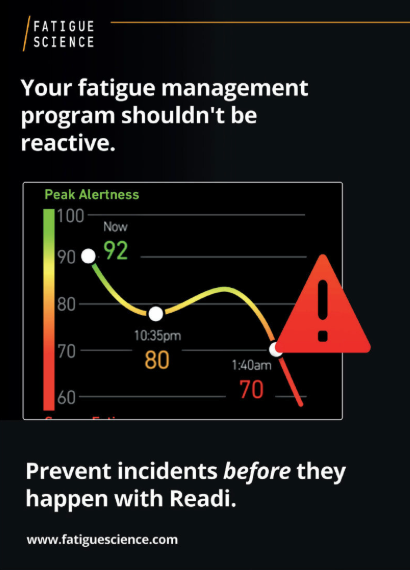It doesn’t matter what uniform you put on or what education you have, we are all human beings subject to the laws of nature.
In modern medical research there is less and less criticism of the methodology of published research and more and more criticism of the interpretation of the results. What does the research really mean outside the context of the immediate research subjects? Case in point, a January 2015 publication in the American Journal of Surgery entitled: “The Sleepy surgeon: does night-time surgery for trauma affect mortality outcomes?”
The research has been characterized as saying that trauma surgery is not any riskier at night than during the day, “The studies here add to a growing body of evidence suggesting that surgeons, particularly experienced surgeons, can devise techniques to compensate for sleep deprivation” (Dr Carlos Pellegrini, University of Washington).
Really? What are these magical techniques? The fact is they don’t exist. This is a classic case of overreach and over interpretation of a narrow study. The research itself appears robust, the conclusions: not so much.
They looked at 2007-2010 data from the National Trauma Bank on 16,096 exploratory laparotomies started between midnight and 6 am and 15,109 between 7 am and 5 pm. They concluded that there was no statistical difference with respect to patient deaths between night time and day time surgeries. That sounds interesting. Except, as Dr Pellegrini points out, “The exploratory laparotomy in general is a relatively straightforward procedure for which mortality and morbidity are very low.”
So, surgeons don’t make more mistakes, leading to patient deaths, following a simple procedure at night. That’s about it. Surgeons often perform many more complex surgeries. What about those?
It turns out that surgeons are diurnal human beings like the rest of us. In 2012 the FAA’s Civil Aerospace Medical Institute published a study on fatigue and concluded:
In terms of vulnerability to fatigue, we believe it is reasonable to assume that the professional cabin crew population is not inherently different at the genetic/ biological level than any other sub-group within the aviation community. Similarly, it is reasonable to assume that the commercial aviation population is not inherently different than any other group of generally healthy adults exposed to round-the-clock work schedules.
It doesn’t matter what uniform you put on or what education you have, we are all human beings subject to the laws of nature. In 2012 Harvard medical school teamed up with Massachusetts General Hospital to study the fatigue of Orthopaedic residents. They measured their actual sleep using FDA cleared Readiband technology and their actual fatigue levels using the highly validated SAFTE bio-mathematical model and concluded:
“Residents were fatigued during 48% and impaired during 27% of their time awake. Among all residents, the mean amount of daily sleep was 5.3 hours. Overall, residents’ fatigue levels were predicted to increase the risk of medical error by 22% compared with well-rested historical control subjects. Night-float residents were more impaired (P=.02), with an increased risk of medical error (P=.045).”
Residents were fatigued during 48% and impaired during 27% of their time awake.
In 2014 the American College of Surgeons published the following findings:
- Fatigue has significant detrimental effects, including prolonged reaction time, decreased vigilance, impaired decision making, and delayed recognition of critical situations.*
- Individuals vary in their response to fatigue; an individual’s response may also differ in relation to pre-existing conditions, accompanying stressors, workload, cumulative sleep loss, and the nature of a specific situation.
- In objective testing, individuals often inaccurately assess their own level of sleepiness.
- Data concerning surgeons and fatigue are limited and primarily describe physicians in training.
- Restricted work hours for residents have not been linked to demonstrable improvements in patient safety and better outcomes or improved education of trainees.
…the overwhelming evidence is that human beings, regardless of occupation, simply cannot perform the same at night as they do during the day.
The same American Journal of Surgery published research in 2008 that concluded:
“Fatigue and sleep deprivation cause a significant deterioration in the surgical residents’ cognitive skills as measured by virtual reality simulation. Psychomotor skills are also negatively impacted during tasks that require a combination of psychomotor and cognitive skills.”
There is a dynamic in the medical community much like other communities that have ”carved in stone” processes and schedules and want to avoid change. That is understandable. However, the overwhelming evidence is that human beings, regardless of occupation, simply cannot perform the same at night as they do during the day. Over interpreting narrow research does not change that fact.




